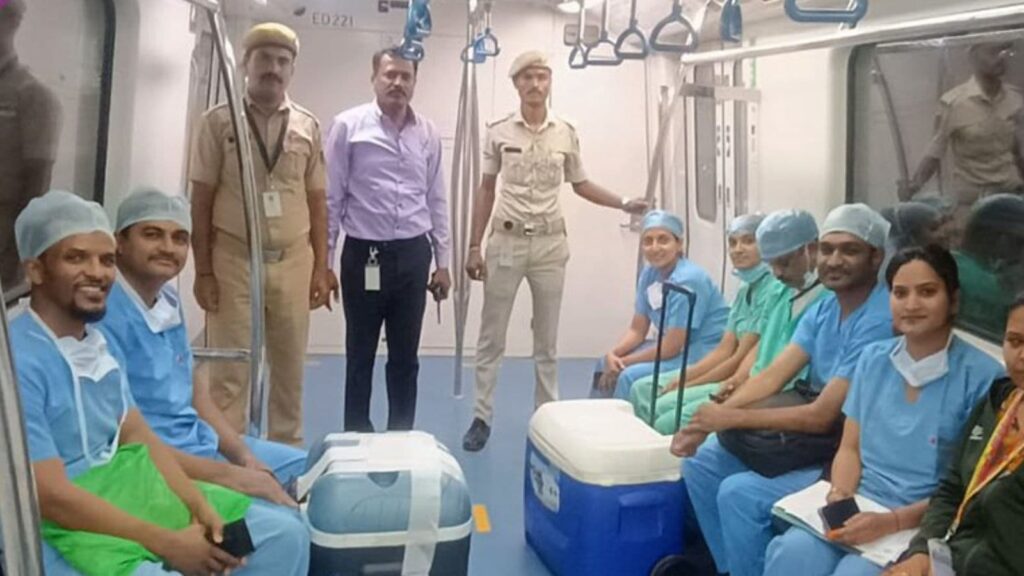In a first-of-its-kind development for the city, Bengaluru Metro Rail Corporation (BMRCL) facilitated the transportation of a donated human liver for transplant – marking Bengaluru’s entry into a select list of cities leveraging rapid transit systems for life-saving medical emergencies.
ARTICLE CONTINUES BELOW VIDEO
At 8.38 pm on Friday, an ambulance carrying the liver left Vydehi Hospital and reached Whitefield metro station, where a team comprising a doctor and seven medical personnel coordinated with BMRCL staff. The team was received by an Assistant Security Officer (ASO) and metro personnel, who helped with documentation and security procedures.
The liver was transported on a metro train that departed Whitefield station at 8.42 pm and reached Rajarajeshwarinagar metro station by 9.48 pm. Upon arrival, another ASO and Metro staff ensured a smooth transition to a waiting ambulance, which took the organ to Sparsh Hospital for a critical transplant procedure. The distance between the two hospitals is 32 km, which takes roughly 1.5 hours to cover.
“We facilitated organ transport with passengers on board. We had given the medical professionals the last coach of the train. Most of the procedures and subsequent arrangements took place within minutes, spontaneously,” said a BMRCL official.
BMRCL also stated that the entire operation was carried out as per the Joint Procedure Order (JPO) and guidelines issued by the Ministry of Housing and Urban Affairs (MoHUA). The successful execution of this mission makes Bengaluru only the second city in India to use a metro system for organ transport.
In 2021, Hyderabad Metro facilitated the transport of a heart, harvested from a brain-dead donor. The organ was taken to Nagole metro station by ambulance and then transported on a non-stop, passenger-free metro train to Jubilee Hills Check Post station – covering 21 km in under 30 minutes.
In 2023, MoHUA amended the Metro Railways (Carriage and Ticket) Rules, 2014, allowing the transport of human organs or tissues via metro, provided a hospital-authorised person carries them under the Transplantation of Human Organs and Tissues Act, 1994.


